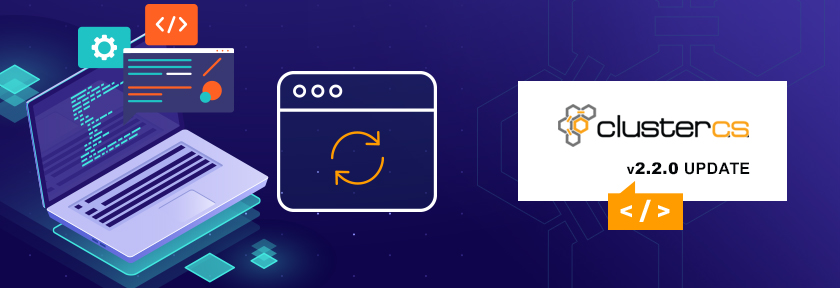ClusterCS has reached its 2.2.0 update and we are happy to tell you what’s new.
We are in the process of deploying a number of updates, which will drastically improve your website’s security.
As you may know, on Apache, our available options to run PHP are suPHP and PHP-FPM, both of which spawn processes which run under the domain’s username. This way, we can ensure that a malicious PHP process cannot infect other domains.
On Nginx however, we only had the option of FCGI. FCGI runs all the PHP scripts on all domain under the same user. For this, we have added PHP-FPM support on Nginx.
With this update, we will be ready to set more restrictive permissions on the folder tree that ClusterCS creates for your domains. In addition to extra security, PHP-FPM provides more customizability, which can boost the performance of your domains compared to FCGI. However, this means that FCGI will not function correctly anymore, which is why we have decided to drop support for it in the near future.
Our default recipe uses Apache, together with PHP-FPM, and installs Nginx just as a possible caching layer. This means that running PHP on Nginx is uncommon. Our support team has reached to every one of our clients that could be affected in order to assist them with the transition. If you are using Nginx and are unsure whether or not you are affected by this update, please contact our support team!
Update:
-
- Nginx PHP-FPM: You can now choose on the PHP module whether you want PHP-FPM or FCGI for nginx.
Bugfixes:
-
- Deleting a server/cluster would not show up in Services if you manually change the entity ID
- Dev Envs would now set correct ports on Nginx
- Rpaf module for Apache now works in Clustering Environments where there is a Load Balancer
- Dev Envs now fill data for domain names from the parent domain
- After enabling GIT for the Dev Env, the post-commit hook will now be correctly generated
- Previously PHP required either apache or nginx with the option to be able to run php enabled. Now we have removed this pre-requisite in case you want a server with just php to run scripts through CLI commands for example.
Let us know what you think of this update and if you don’t have an account, give it a try!
